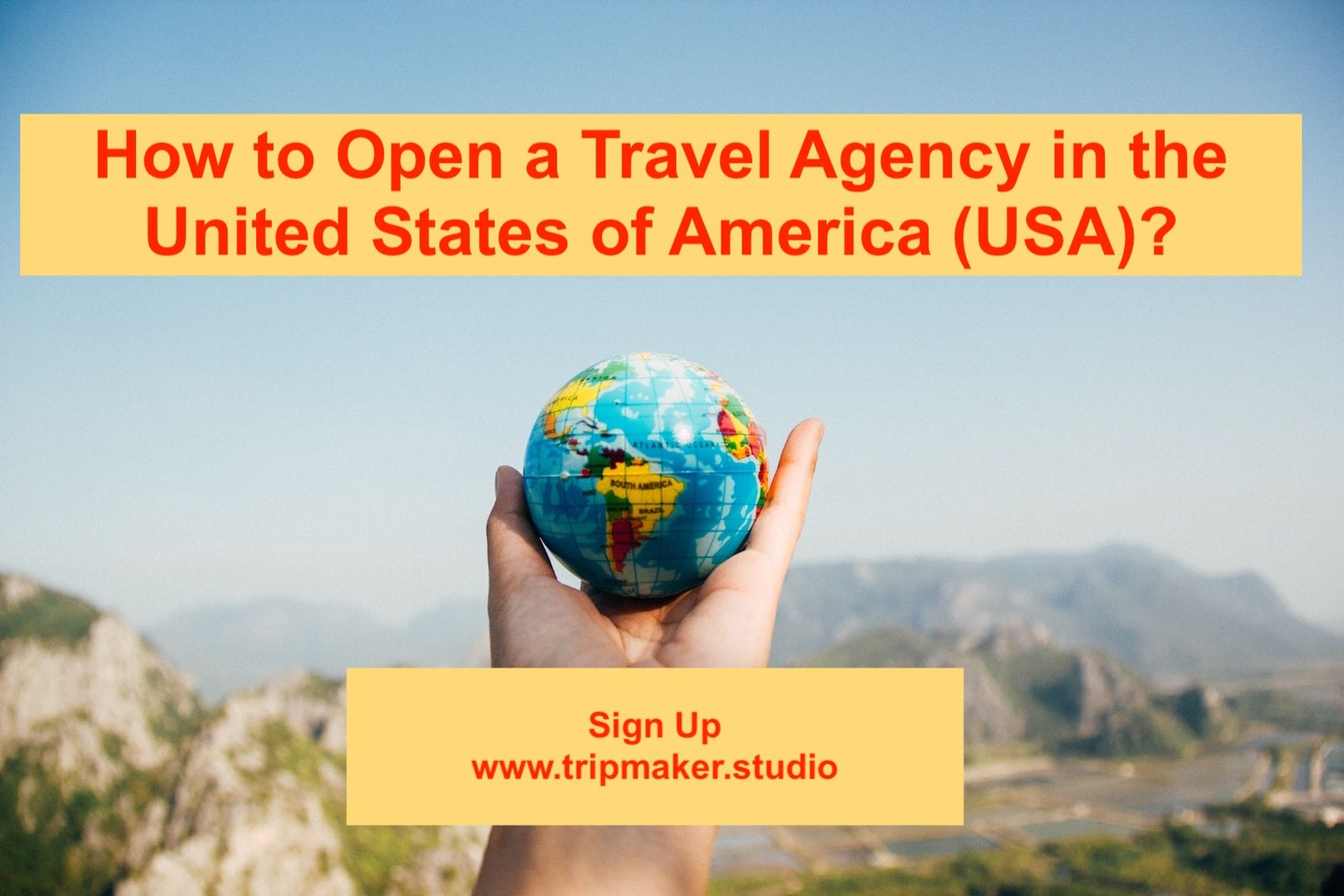How to Open a Travel Agency in the United States of America (USA)

Introduction
Starting a travel agency in the United States can be a rewarding business venture. With over 100 million Americans traveling internationally each year, there is a large and growing demand for travel services. If you are passionate about travel and have a good understanding of the industry, you may be well-suited to start your own travel agency.
This blog post will provide a detailed guide on how to open a travel agency in the United States, including information on:
- Choosing a business structure
- Obtaining the necessary licenses and permits
- Creating a business plan
- Marketing your travel agency
- Building relationships with travel suppliers
- Providing excellent customer service
Step 1: Choose a business structure
The first step in starting a travel agency is to choose a business structure. The three most common business structures for small businesses are:
- Sole proprietorship
- Partnership
- Limited liability company (LLC)
Sole proprietorship is the simplest business structure, but it also offers the least amount of liability protection. If you choose to operate as a sole proprietorship, you will be personally liable for any business debts or liabilities.
Partnership is similar to a sole proprietorship, but it involves two or more people. Partners are jointly and severally liable for the debts and liabilities of the business.
Limited liability company (LLC) is a more complex business structure, but it offers the most amount of liability protection. If you choose to operate as an LLC, your personal assets will be protected from business debts and liabilities.
Step 2: Obtain the necessary licenses and permits
The licensing requirements for travel agencies vary from state to state. In some states, no license is required to operate a travel agency. However, in other states, you may need to obtain a Seller of Travel (SOT) license.
To learn more about the licensing requirements in your state, you can contact your state's attorney general's office or consumer protection agency.
Step 3: Create a business plan
A business plan is a roadmap for your business. It should outline your business goals, strategies, and financial projections.
Your business plan should include the following sections:
- Executive summary
- Company description
- Products and services
- Market analysis
- Competitive analysis
- Marketing plan
- Management team
- Financial projections
Step 4: Market your travel agency
Once you have created a business plan, you need to start marketing your travel agency. There are a number of ways to market your travel agency, including:
- Creating a website
- Listing your travel agency in online directories
- Attending travel trade shows and conferences
- Networking with other travel professionals
- Advertising in travel magazines and newspapers
Step 5: Build relationships with travel suppliers
In order to provide your clients with the best possible travel services, you need to build relationships with travel suppliers, such as airlines, hotels, and car rental companies.
You can build relationships with travel suppliers by attending travel trade shows and conferences, networking with other travel professionals, and contacting travel suppliers directly.
Step 6: Provide excellent customer service
One of the most important things you can do to ensure the success of your travel agency is to provide excellent customer service. This means being responsive to your clients' needs, going the extra mile to help them plan their trips, and resolving any problems that may arise.
Conclusion
Starting a travel agency can be a rewarding business venture, but it is important to do your research and plan carefully. By following the steps outlined in this blog post, you can increase your chances of success.
Here are a few additional tips for success:
- Specialize in a particular niche. This could be a particular type of travel, such as luxury travel, family travel, or adventure travel. Or, you could specialize in a particular geographic region.
- Offer competitive pricing. Be sure to shop around and compare prices from different travel suppliers before booking your clients' trips.
- Provide personalized service. Take the time to get to know your clients and their travel preferences. This will help you create custom itineraries that meet their needs and budget.
- Be responsive to your clients' needs. Return phone calls and emails promptly, and be available to answer any questions your clients have.
- Go the extra mile. This could mean anything from helping your clients get a visa to packing their bags.
By following these tips, you can increase your chances of building a successful travel agency.
